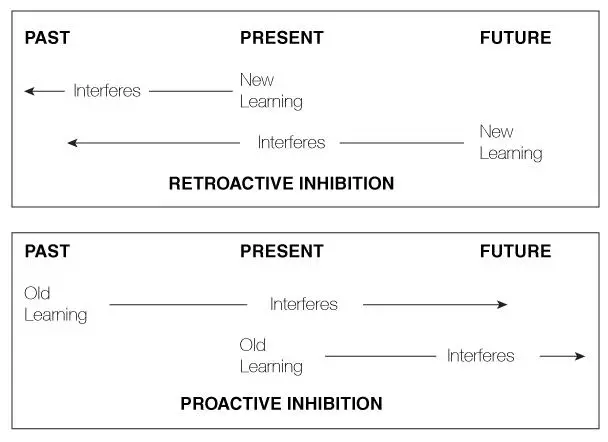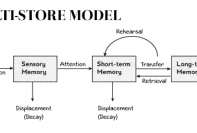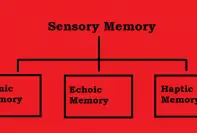Forgetting refers to failure to either recall or retain information into present consciousness. All experiences leave traces or after-effects (images) in memory parts of the brain. Failure to retain these traces from the parts of memory is called Forgetting.
There are various factors that come into play that leads to disappearance of information from the brain. Traces are known to become weaker with the passage of time, and could even fade away gradually. Interference of new experiences also causes disruption in memory, which causes forgetting. Past experiences do not always remain fresh. We even repress certain memories of unpleasant experiences voluntarily.
Failure to transfer information from working memory to long-term memory is one of the most frequent reasons for forgetting. Furthermore, our inability to recall information from long-term memory also leads to forgetting.
There is variety of theories that explains forgetting. Here are some of the major types and causes of forgetting.
Fading
Disuse of information causes memory traces to slowly eradicate with time, and this process is called Fading. Fading occurs rapidly from the Short-term memory. Information in working memory fades away, as new incoming information is stored in the Short-Term Memory.
This form of fading is preventable.
- By continuously focusing attention on the information
- Continuous Rehearsal
- Transfer of information to the Long-Term Memory
Information can even fade away from Long-Term Memory in time. What really happens is the fading of link, a way, to retrieve that information. This kind of fading is also preventable.
- By encoding information as meaningfully as possible
- Frequent Retrieval
- Actively restoring it
- Using effective memory search strategies
Interference
Interference is another major cause of forgetting. General understanding of the subject suggests that “Information gets confused with other information in our Long-Term Memory.”
Two types of Interference are:
- Retroactive Interference
- Proactive Interference
Retroactive Interference
A mix up of previously learned information with new and similar information is called Retroactive information.
Example: A student studies and understands the events and causes of World-War I thoroughly. After few weeks, the student studies events and causes of World-War II.
If the student then fails to remember the events and causes of First World-War, this would be an example of Retroactive Interference.
Proactive Interference
The phenomenon where the student fails to remember new information having mixed it with similar previous information is called Proactive Interference.
Example: Like the previous example, a student studies and understands the events and causes of World-War I in depth. After few weeks, the student studies events and causes of World-War II.
If the student then fails to remember the events and causes of Second World-War, this would be an example of Proactive Interference.

Motivated Forgetting
The process of purposefully blocking or repressing memory information is termed as motivated forgetting. The term is derived from Freudian Psychotherapy that refers to Repression. Basically, it means trying to avoid remembering or recalling any information deliberately.
Example: An abused child may not be able to recall the events in details having suppressed them.
Suppression or Repression of memory is not always a result of an emotional trauma. For instance, a student who hates her French teacher might not remember her French lessons. This is mainly because she has avoided contact with the subject matter.
Causes of Forgetting aren’t limited to just these and there are various other factors that affect memory. Memory disorders like Amnesia also cause Forgetting. Two major types of Amnesia are:
- Psychological Amnesia: Disturbances in the process of encoding, storage, and retrieval causes psychological amnesia.
- Biological Amnesia: Abnormal functioning of brain results in biological amnesia, which might be caused by any internal problem such as uneven blood flow, drugs, diseases, blow to the head, and other damages to brain.




